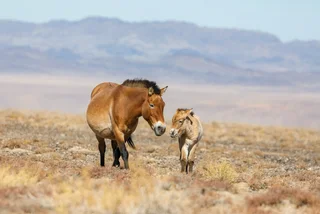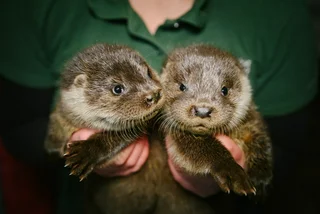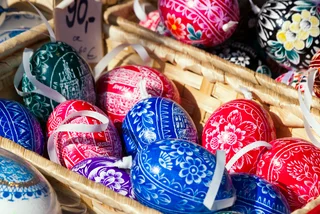An international team of scientists including experts from Czechia announced today that they have successfully created five additional embryos of the critically endangered northern white rhino subspecies. Furthermore, two female southern white rhinos have been chosen as surrogate mothers for the embryos, according to Safari Park Dvůr Králové.
Since 2018, only two northern white rhinos exist in the world, making it the most highly endangered species of mammal. Both are females, a mother and daughter who were born in captivity in Safari Park Dvůr Králové, located in the Hradec Králové Region of the Czech Republic. Fatu was born in 1989 and Najin in 2000. No male northern white rhinos are known to currently exist.
Both remaining females can't reproduce naturally
Safari Park Dvůr Králové has long been involved in efforts to preserve the species. The zoo owns the remaining rhinos but transferred them, along with two males who have since passed away, to Ol Pejeta Conservancy in Kenya in 2009 in an effort to get the rhinos to reproduce naturally. The last male northern white rhino, named Sudan, died in 2018.
The only other place in the world to have the subspecies was the San Diego Zoo Safari Park, but their last specimen died in 2015.
To date, a total of 29 northern white rhino embryos have been developed and preserved through this ongoing artificial reproduction project aimed at saving the subspecies from extinction. Previously, scientists estimated that dozens of embryos would be required for the project. The process of extracting eggs and creating embryos began in 2019 as part of the initiative to safeguard the northern white rhino population.
In May, scientists conducted the 13th egg extraction from Fatu. A total of 18 egg cells were successfully collected and then fertilized at the Avantea laboratory in Cremona, Italy. These matured into five new embryos, the zoo announced in a press release. Prior to this, two embryos were generated from collections in November 2022 and February 2023. The eggs were fertilized using thawed sperm from deceased male northern white rhinos.
Two surrogate mothers chosen
As part of the BioRescue team's efforts, two female southern white rhinos in the Ol Pejeta Reserve were identified as potential surrogate mothers due to the inability of Fatu and Najin to carry a calf.
They also determined that the male southern white rhinoceros named Ouwan, who is sterile, can be used to act as an indicator of the ideal time for embryo transfer but cannot impregnate the surrogate mothers. The bull’s attempts to copulate with the females indicate when they are ready to reproduce. The bull, though, is incapable of fertilizing the female so any pregnancy would be a result of the implanted embryos.
To test if the procedure will work, scientists will first transfer a southern white rhinoceros embryo at the appropriate time and monitor how it develops. Once this procedure successfully results in a pregnancy, the team will use the same method to transfer a northern white rhino embryo to the surrogates.
More methods being explored
In addition to the reproductive efforts, scientists are also exploring stem cell research as another avenue to preserve the northern white rhino subspecies. In December 2022, they achieved a significant breakthrough by creating primordial germ cells from the rhinos' stem cells, which serve as the precursors to eggs and sperm. This accomplishment marks a groundbreaking achievement, especially in such a large mammal.
Aside from the Dvur Králové Safari Park and the Ol Pejeta Conservancy, the BioRescue consortium also involves scientists from the Leibniz Institute for Zoo Animal Research (IZW-Berlin), the Kenya Wildlife Service and the Wildlife Research and Training Institute (WRTI).












 Reading time: 3 minutes
Reading time: 3 minutes 






























